|
I believe many of you will have by now experienced the beautiful Casa Del Sol prayer of Jesus in our services. It is a sung paraphrase of The Lord's Prayer written by John Philip Newell. An ordained minister of the Church of Scotland, former Warden of Iona Abbey, Companion Theologian at the American Spirituality Center of Casa Del Sol at Ghost Ranch in Abiquiu, New Mexico, and noted scholar of Celtic spirituality, his works and wisdom have become infused into Plymouth's worship life. It was a pleasure to lead his "Prayer of Jesus" (as we have come to call it) in Mr. Newell's presence upon his visit to Plymouth several years ago. I have gladly shared this prayer and musical setting with several colleagues and people throughout the world. It is good to know others can experience this meaningful paraphrase of perhaps the most ecumenical of all prayers in Matthew 6.9-13. And many more can experience the poetic text in Mr. Newell's publication The Ground of All Being: The Prayer of Jesus in Color, a small tome presenting each line of the nature-oriented prayer with a scene from the deserts of New Mexico. This contemporary paraphrase of Jesus' ancient words is quite special to me. It speaks to universal truths that one can relate to regardless of religious affiliation or lack thereof. Inclusive to the core – as Love is. Below you will find the original version as conceived by Mr. Newell (a few slight changes were made in our sung version to more elegantly accommodate the melody). I find these words to be especially poignant today as we wade through strange landscapes as a people far and wide — and close to home. Mark Ground of all being,
Mother of life, Father of the universe, Your name is sacred, beyond speaking. May we know your presence, may your longings be our longings in heart and in action. May there be food for the human family today and for the whole earth community. Forgive us the falseness of what we have done as we forgive those who are untrue to us. Do not forsake us in our time of conflict but lead us into new beginnings. For the light of life, the vitality of life, and the glory of life are yours now and forever. Amen. A guiding mantra in programming music for Easter Sunday this year was "expressions of Easter joy." As a worship planner, having a thematic approach to each service is nothing unusual. It's in fact the default method for creating the tapestry of words, music, and liturgical action required for a cohesive hour of community worship. But on such a prominent day of the church year as Easter Sunday where the natural expectation would be "shades of forte" throughout the morning, I found it enlightening to ponder the question, "What is Easter joy?" What is it that we are celebrating and how can that be viscerally expressed through music and worship? The Three Joys quickly came to mind.
Joy. The baseline variety. An appreciation that all is well and feeling happiness and excitement in that moment. The Spirit shows us that life can never truly die. The hymn writer John Crum succinctly stated this joy in verse four of the Easter hymn "Now the Green Blade Rises": "When our hearts are wintry, grieving or in pain, Christ's warm touch can call us back to life again...Love is come again like wheat that rises green." Ecstatic Joy. The enthusiastic intense sort. More of a burst of energy and motion — action — as words cannot adequately express this sublime restless feeling. The Good News becomes a reckless kind of hope in the reality that Love can never die. And that truth is quite exhilarating. And profound. A Quiet Joy. The contentment and assurance — a bold hope — that the Spirit's promise of unrelenting life in every moment, even in spite of hardship, is real. The worship services last Sunday, the Second Sunday of Easter, were intended as a way to immerse ourselves into this quiet joy. Inspired by the contemplative Catholic feast day Divine Mercy Sunday on Easter 2, we entered a peaceful space where the significance of the Resurrection could be meditated upon through Taizé chants of the Paschal season, the soothing tones of a string quartet, and moments of prayerful reflection. On Easter Sunday we experienced the expected "shades of forte" through triumphant trumpet calls and robust congregational singing of joyful Easter carols. The organ roared in its support and offered an explosive moment of ecstatic joy in a contemporary setting based on an ancient Gregorian Easter chant. The Plymouth Ringers shared a contemplative meditation on that quiet Easter morning long ago. The Chancel Choir sang a more personal and whimsical account of Jesus' return in the first person exclaiming "I'm back...Love brought me back!" presented in a gospel and musical theater influenced style. The hope is that diverse expressions from across time, space, and varied cultures and traditions can enhance our understanding of greater truths, such as the life-giving power of the Resurrection, and connect us more deeply with the community of Life Seekers both past and present. May it be so this joyful Eastertide. Paschal Blessings, Mark A couple of weeks ago, I shared a few thoughts with the Chancel Choir about our music ministry at Plymouth. It is helpful to step back and reflect on one's role in the greater mission of the church. The result is often one of rejuvenation, a healthy recalibration and a more profound appreciation of music's healing and life-giving power. This time was no exception. Allow me to share with you then the fruits of this reflection.
I view our midweek rehearsals as so much more than a time to just "get things done." It is a midweek communal oasis in our often busy lives and one path to put faith into practice by giving back to the church in such a purposeful, beautiful and uplifting way. It is inherently a spiritual experience combining beautiful music thoughtfully selected to illuminate the message of our worship services. And it certainly is also a space to grow musically and vocally as choral singers as well. The progress we make together in our weekly explorations and practice allows for quality and inspired anthems to grace Plymouth's worship life. It is a gift of service we can offer to the church. And as choristers know all too well – for ourselves. These thoughts apply to all of Plymouth's music ensembles as well of course. It is clear to me that the intention behind our service is well understood by the Chancel Choir, the Plymouth Ringers and the 9:00 a.m. service musicians. There is joy in our music-making and time together! We have a happy and selfless group of volunteers who generously give their time and talents to Plymouth's music ministry. And I invite you to join us as well in whatever capacity you have available to you! There is never an all-or-nothing commitment. If you enjoy singing, consider sitting in with the Chancel Choir for the Third Sunday "Pick-Up Choir" dates including this Sunday, February 18! Rehearsal is at 10:10 a.m. The music will be very accessible and we'd love for you to join us. The Plymouth Ringers meet on Wednesdays from 6:00 - 6:45 p.m. in the Forum Room. No prior musical experience required. All you need is a desire to have fun and perhaps even to ring! From the youth, Kids Will Sing!, led by Liz McGrew, bring their offerings to worship on occasion with much fervor and joy. Expect a visit from them on Sunday, February 25 at the 11:00 a.m. service! Also coming this spring will be a restoration of a youth hand chime choir. More opportunities abound for youth participation in Plymouth's music ministry! Stay tuned. I have greatly appreciated the value Plymouth places on music in worship over the years in all its wondrous diversity. The universe speaks in mysterious ways whether it be in the grandeur of an organ postlude on a familiar hymn tune, the beauty of an expressive choral anthem, the esoteric sounds of bells in our hallowed space, or the universal message of peace and love in a classic song by The Beatles. With a little help from our friends, we can can ensure a lasting presence of intentional joyful service in Plymouth's music ministry for years to come. Mark Mark Heiskanen, Dir. of Music/Organist I know that art is perhaps the strongest means we have to recall the moment of God's touch, and to affirm the profound, private message of faith we are given when we touch God. I believe it is the artist's job to make pieces that are vehicles for the "moment of the touch."
- Composer Libby Larsen in her forward to the choral anthem “Lord, Before This Fleeting Season” Last Thursday I presented a program on carols to the First Name Club following their monthly luncheon. It included select examples from both the Advent and Christmas seasons (yes, carols aren’t always about Christmas!) which we engaged in with stories of their creation, listened to, and even sung for good measure. What I came to viscerally be reminded of was the value of ritual for humanity. Specifically, the need of a song for every season. Whether it be carols sung in December, Christmas music delivered through grocery store speakers while shopping, or the often impromptu performance of “Happy Birthday” to an unsuspecting recipient, we not only have a song for just about any season but we tend to insist upon its use. But sometimes, songs with messages that challenge us can be greeted hesitantly. Once we allow them in though, we can be changed. We can gain new perspective. We can even potentially have that "moment of the touch" in the realm of God. I leave you with an encore sharing of the following Advent poem text set by composer Libby Larsen in her sublime anthem “Lord, Before This Fleeting Season.” It reminds us beautifully of perhaps what we don’t especially wish to hear this busy time of the year —the message of Advent. To slow down. To prepare our hearts for transformation in God. To embrace the promise of hope, peace, joy, and love. And perhaps even to have “a leaning to hear carols.” Lord, before this fleeting season is upon us, Let me remember to walk slowly. Lord, bless my heart with Love and with quiet. Give my heart a leaning to hear carols. Grace our family with contentment, And the peace that comes only from You. Lord, help us to do less this busy season; Go less; stay closer to home; kneel more. May our hearts be Your heart. May we simply, peacefully, celebrate You.* -Mark *“Simply Celebrate You — an Advent poem” by Mary Ann Jindra, Permission to print: Christian Copyright Solutions #11133 Last Sunday in worship, the Chancel Choir offered the anthem "I Believe" by Mark Miller. The text is an excerpt from an anonymous Jewish poem found scrawled on a cellar wall in Germany near the end of World War II. The music beautifully expresses the author's unwavering faith and radical hope even in the most uncertain of times. I selected this piece in light of our stewardship focus this month and the message that faith and hope can lead us as a church into greater abundance. We just have to listen intently to that still voice within. And believe. And these words became an even more poignant prayer with the tragic events unfolding in Israel and Gaza this week. Below is the full text by this unnamed author who over 75 years ago expressed his or her faith and dreams of hope under the most dire of conditions. May it inspire and remind us that God is always there. I believe in the sun even when it is not shining. It has been wonderful to see so many of you participate in Plymouth's music ministry this summer, thank you! From the Summer Choir outings (last one on August 20....come join us!) to musicians offering their talents on the occasional Sunday morning to the pop-up "eclectic service" appearances once a month (i.e. the 9:00 a.m. service worship style), the vibrancy has been yet another welcome sign of our emergence from COVID stasis to abundant life.
Shall we continue this trend into the next program year? We surely can with your interest and participation! If you have even the slightest curiosity in supporting Plymouth's musical worship life, I encourage you to consider participating in the Chancel Choir or Plymouth Ringers this year. We are a merry band who enjoy each other's company and the joy of making music together. We would love to have you with us! New routines are hard to begin understandably, especially in today's often busy multifaceted lifestyle. I find namely two reasons though why some folks are hesitant to participate when they would like to consider doing so. These reasons are:
I can assure you if you wish to sing or ring this year, we can make it happen. We would love for you to be with our merry band in whatever capacity you are able. Feel free to speak with me with your interest or questions after worship or contact me via the contact form or by phone at (970) 482-9212 ext. 116. Ensemble rehearsals this fall begin on Wednesday, September 6. Plymouth Ringers rehearse in the Forum Room from 6:00 - 6:45 p.m. The Chancel Choir meets in the sanctuary from 7:00 - 8:30 p.m. I hope you will consider taking part in Plymouth's music ministry this year. As you can see, I promise we will make it very easy for you to join in! Let's continue the vital musical and worshipful expressions of voice and instrumental timbres for years to come. Together. Mark "I am a DJ. I am what I play" - from the David Bowie song "D.J." (1979) I found myself musing recently about the role of music in worship. It's a nearly moot internal discussion at this point for me, as my body has been essentially hijacked to show up at a church on Sunday morning and play music. Conduct. Something. This benign captivity began at the young age of 10 years old and is clearly not going to end until I do. Being a church musician and music director is in my blood, as they say, and it's terminal. I have no qualms about this self-diagnosis, by the way. But the initial question is still one worth exploring: what is the role of music in worship?
Music seems like a very natural choice in a gathering where the sublime aspects of our humanity — our connection with the Divine — are enticed to rise to the surface. The diverse unspoken language of music can offer us a glimpse into this mystical space. At the very least, it can be a visceral prayer without words. Different vibrations can unlock a whole world of experience in listeners, not as aural entertainment but embodied joy, love, peace, prayerfulness, sorrow, and a myriad other affects that are part of the Jesus story and God's wonder of creation. Sometimes we are not prepared to hear those frequencies, for whatever reason, but what binds all those sonorities emitted in our Beloved Community will always be intent. The questions I ask myself when programming music for worship include: Does the music accentuate and complement the minister's message and scripture reading in an empowering and nuanced way? Does the affect of the music serve the Spirit in the same fashion? For example, on Maundy Thursday and Good Friday, does not the Passion of Christ necessitate an affect of solemnity and introspection as we retrace Jesus' steps through those agonizing last days of his ministry? On Easter Sunday, the joy and triumph of resurrection can be expressed in outwardly jubilant declarations of brass and organ of course. But how about also the assured bliss of life eternal within — a quiet joy? Music plays an influential role in providing nonverbal commentary to liturgical proceedings. With the diversity of available compositions from many eras and cultures (and also in the moment improvisations!), Christian worship can be a place where we are privy to spiritual expressions from composers across time and space. It is a wonder. On the surface it may appear a church music director is some manner of ecclesiastical disc jockey of sorts. Playing the hits. Spinning our own personal faves. Get that floor thumping. Keep everyone happy and dancing! For me, a more accurate analogy is the field of film scoring. Live film scoring, that is. The story of a film dictates the music's purpose, ebbing and flowing with the drama and events on the screen. We can be moved to joy, encouraged to hope, experience truth, and even driven to tears. At any given worship service, we are comforted and also challenged by God's voice in word, song, and music within a diverse range of expressions. It is how we grow and mature as followers of Christ. The spiritual life is like that, isn't it? May the blessings of worship in sound and vision help shape us for years to come. Mark Perhaps no other time in the liturgical year demonstrates the truly sacred dimensions of music in worship as in the sequence of services from Holy Week through Easter Sunday. The meditative spirit of Lent reaches its conclusion in the drama, even pathos, of Maundy Thursday and Good Friday in remembrance of Jesus' last tragic days of his world-changing ministry. And then Easter Sunday— a burst of joy (boisterous and quiet expressions alike!) celebrating the assured victory of life over death. Green blade rising. Music for every occasion. A spiritual tool to bring us closer to the divine. Truly a remarkable gift to the world this "ordered sound." I offer these inspired words from the closing paragraph of the wonderful book "A Song to Sing, A Life to Live" by Don and Emily Saliers: Listen, and sing... Begin with the music you already cherish but live with openness to the possibility that in the coming years music you have not yet heard will lead you more deeply into the mystery at the heart of all that is... May music be a wellspring from which you will drink courage and joy. Mark Mark Heiskanen, Dir. of Music/Organist For some, the week before Lent can be crunch time to narrow down the thing they will give up in this upcoming penitential season. A small sacrifice (or large one, if you're feeling particularly masochistic this year!) to experience the withdrawal of an earthly pleasure in hopes of attaining a greater focus on the spiritual. This forty-day respite from one's personal emotional crutches could be characterized, albeit dramatically, as a "farewell to the flesh."
But is it really necessary in order to find the desired equilibrium between the earthly and spiritual? True confessions, I've never been very good at this one! But the Lenten invitation to introspection and meditation in reference to Jesus' forty-day journey in the wilderness I've always found to be a cherished spiritual practice. I hope you accept this invitation as well. In worship life, we hear and see visceral and intentional variations to our services. Chancel paraments along with the minister and choir's stoles take on a purple hue reflecting the age old custom of liturgical church tradition. The music becomes a bit more introspective to encourage a more prayerful and meditative inner life. Our modern day journey culminates in the solemnity of Holy Week: the agape meal we share on Maundy Thursday to the Good Friday Musical Meditation and Prayer. A time of remembrance and reflection. I look forward to walking this Lenten journey with you. Mark No one likes to wait. The often frustrating experience of inconvenient stasis and failed expectations of arrival can easily darken one's mood. But what if those seemingly idle moments can be a gift of the spirit in our lives? Through the prayerful discipline of the liturgical calendar year, we are called to be patient for the birth of Christ during Advent, the season of waiting. By doing so, we immerse ourselves further into the story of Jesus year to year. But perhaps a more appropriate word for waiting is preparing – to be more receptive to the love of God in this season and every one thereafter. I am always reminded of the choral anthem "Lord, Before This Fleeting Season" by Libby Larsen at this time of year. The text by poet Mary Ann Jindra beautifully expresses the message of this fleeting mysterious season. May it make your waiting all the more worthwhile. Lord, before this fleeting season is upon us, Let me remember to walk slowly. Lord, bless my heart with Love and with quiet. Give my heart a leaning to hear carols. Grace our family with contentment, And the peace that comes only from You. Lord, help us to do less this busy season; Go less; stay closer to home; kneel more. May our hearts be Your heart. May we simply, peacefully, celebrate You.* Mark *“Simply Celebrate You — an Advent poem” by Mary Ann Jindra Permission to print is through Christian Copyright Solutions #11133 AuthorMark Heiskanen is Plymouth's Dir. of Music and Organist. Learn more about him and read his weekly Music Minute here. "The balcony is closed." These words would often end the weekly television program At the Movies by film critics Siskel and Ebert, who would review films in an empty theater balcony outside normal business hours for our benefit, presumably. Well, Plymouth took steps a little over a year ago to ensure our balcony is always open–albeit a virtual balcony! When Pastor JT Smiedendorf referred to the online viewers last Sunday as being in the "virtual balcony," that struck me as rather profound. Pandemic aside, the 21st century church has been redefined by technology allowing for meaningful outreach to corners of the world we never thought possible. People are being inspired–transformed –by the Spirit and message of love and inclusion transmitted globally from our worship services now. You will hear testimonies from viewers about how this has impacted their faith and worldview in coming weeks. It is beautiful that we can now share the Good News from our sanctuary to others searching for spiritual sustenance. Our Audio Visual Team is an amazing group of people who run the sanctuary audio and livestream broadcasts each week. Co-chaired by Stuart Yoshida and Nic Redavid, their leadership and technical expertise has allowed our dedicated volunteers to learn the ropes of the new installation and bring quality broadcasts to you and our "virtual balcony" each week. C. Habit Blunk is contracted primarily to operate the video and livestream applications of the system, and we thank them for their enthusiastic and consistent service to Plymouth this past year. As a Deacons Board liaison to the AV Team, I know the challenges they meet and the gung ho spirit of this group and thank them for all their work. By all means, stop by the sound booth and say "Thank you" as well. They deserve it! We are always looking for new volunteers to assist with audio and if you are interested please let myself or a member of the team know. All this is to ensure that at Plymouth we lean into the new virtual church realities of this digital age. While nothing can replace the sense of community of personal interaction in a live sanctuary worship setting, worshipers online are being reached and filled with the Spirit through our digital efforts. And that is no less the mission of God's church as well. Let's keep the balcony WIDE open. Mark In case you missed last Sunday's Organ Encounter (or want to see it again): AuthorMark Heiskanen is Plymouth's Dir. of Music and Organist. Learn more about him and read his weekly Music Minute here. 'Tis the season for starting up again. A general sense of renewal and coming back – with perhaps a clearer perspective – always permeates the air at the start of a new academic year. And I love it! While it's been some time since I attended college or any type of schooling, the anticipation of a brand new academic year of knowledge-seeking still echoes loudly for me. The cooling weather and low level hum of a healthy anxiety made opportunity and personal evolution visceral. That energy remains as I look to a new program year of music ministry at Plymouth. With the blessing of effective vaccines we're granted the opportunity to now just get on with our lives. While Covid infections can still inflict great harm to a few and long Covid is certainly a concern for all, we are nevertheless left with no choice but to just live with this virus. I suggest we embrace the opportunity to "live with it" enthusiastically! Music-making is preferably a contact sport in my view. Without community and close social contact, music would be relegated to solo performances. Those can be obviously wonderful and very satisfying as a musician but the shared experience of musical expression is uniquely uplifting. Whether it be the coordinated ringing of bells in the Plymouth Ringers, the joyful mission of preparing and singing choral anthems in the Chancel Choir, the shifting band of minstrels who provide an eclectic array of sounds for the 9:00 a.m. Sunday services, or congregational singing – the heartbeat of a church's musical worship life – it is in community that the Spirit is stirred most profoundly. We have a chance to confidently enter yet another new beginning. We can safely infuse our valued traditions as a church, such as a vibrant choral program, with new life if we so choose. I choose to offer a robust response to this opportune moment and heartily invite you to participate in this blessed space as well. 'Tis truly the season to do so. Mark . AuthorMark Heiskanen is Plymouth's Dir. of Music and Organist. Learn more about him and read his weekly Music Minute here. In the Netflix show Stranger Things, the small town of Hawkins, Indiana is repeatedly encroached upon by the malevolent parallel dimension known as The Upside Down, a nightmarish mirror image of our own world ruled by an entity named The Mind Flayer. Season by season, its attempts to fully manifest in our world are thwarted by a hardy group of 1980's misfit kids–nerds! The trauma of their experiences leaves them uneasy–scarred– yet hopeful that the portal to The Upside Down will never open again. But when it frustratingly does so, they breathe a collective sigh and fight once more confident that they will again be victorious. And you know what? Each renewed manifestation of The Mind Flayer carries less impact because they are no longer innocent. These brave young heroes have tried and true techniques to combat the menace. Protection. They are ready. Not so much The Upside Down, then, but The Slightly Skewed! There's a twinge of hope in there I'll gladly embrace. Mark AuthorMark Heiskanen is Plymouth's Dir. of Music and Organist. Learn more about him and read his weekly Music Minute here. The synergy of brass and timpani, organ, and a singing congregation expressing acclamations of Easter joy — jubilation. A reinvigorated Chancel Choir enthusiastically offering anthems of praise and thanksgiving with new members joining the merry band of singers — rejuvenation. The gentle peal of bells by the Plymouth Ringers during communion reminding us of the transformative message of assured hope in Eastertide — a quiet joy. The diversity of worshipers in the sanctuary on Easter morning of all ages, races and creeds, faces familiar and strangers warmly welcomed — a blessed community. And many more instances we each could share revealing those precious slivers of light in these ever-emerging days of life and vitality—Paschal blessings. Easter Sunday morning was truly a Day of Resurrection. We have seen it manifest slowly over the previous few months with faithful hope sustaining us these past two years. But what a joy it was to experience! Even the return of Plymouth's Easter cinnamon rolls tradition (no Covid protocols this time.. just grab and eat!) carried an impact no one would ever thought possible in a pre-pandemic world. May our cherishing of life and love continue forward. Forever. Mark AuthorMark Heiskanen is Plymouth's Dir. of Music and Organist. Learn more about him and read his weekly Music Minute here. I have been asked on occasion over the years what is the appeal of being a conductor or music director. The question would often go something like this: "If an ensemble doesn't play or sing to one's expectations, then everyone may look to you. Isn't it more rewarding then to just take responsibility for your own musical offerings as a soloist instead?" As rewarding as a solo performance can be in any context, my answer comes easy—no. The sense of community one discovers in a choir, a musical ensemble, and especially in congregational singing is vital to our collective musical and worship experience as a church. We are better together. The pandemic has sent us as worship staff into surreal territories such as prerecording services into bite-size chunks to be reassembled again, livestreaming to empty pews, and on occasion broadcasting from multiple locations via Zoom. Needless to say, community worship required a strong helping of imagination to accompany our best intentions—as a congregation we all chipped in with that! Music-making for myself became a private endeavor in large part. Plymouth's music ensembles, when they could safely meet, offered modest (yet spirit-filled!) selections as we observed social-distancing protocols and limited the number of participants who could gather at one time. And congregational singing, the heartbeat of the church's collective song, could only be imagined in viewer's homes on the other side of the sanctuary camera lens. We came back. And we retreated for our own health and for our neighbors. And likely soon, we will return once again to worship— and yes, sing and play!—as a church family and congregation. Choir rehearsals will resume and ringers will reconvene on Wednesday evenings. The joy of preparing our offerings for worship, experiencing and deepening our understanding of the music and its intention, and being with each other as a merry band of music-makers once again will come rushing back in and be welcomed with wide open arms. And in the sanctuary, God's people singing hymns and songs of old and new together as one voice will make a glorious sound. One community in Christ. I leave you with these uplifting words from the closing paragraph of A Song to Sing, A Life to Live, a fascinating book reflecting on music as spiritual practice by Don and Emily Saliers: Listen, and sing. Mark AuthorMark Heiskanen has been Plymouth's Director of Music since September 2017. Originally from Northeast Ohio, Mark has experience and great interest in a diverse range of musical styles including jazz, rock, musical theatre, and gospel. He is thrilled to serve a congregation and staff that values diversity and inclusion in all facets of life. Mark's Music Minute can be read here. |
Details
|

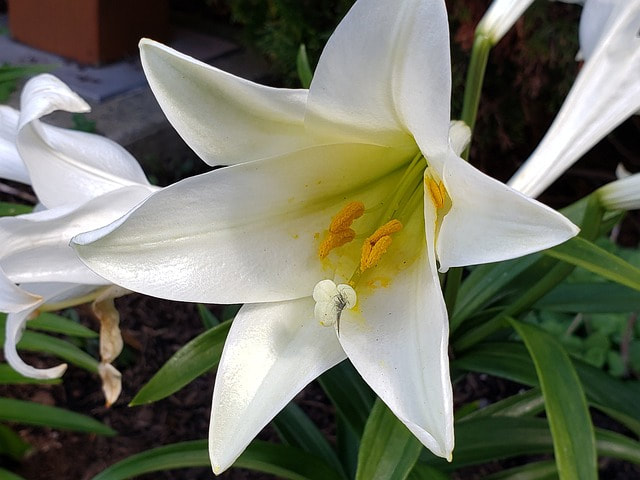


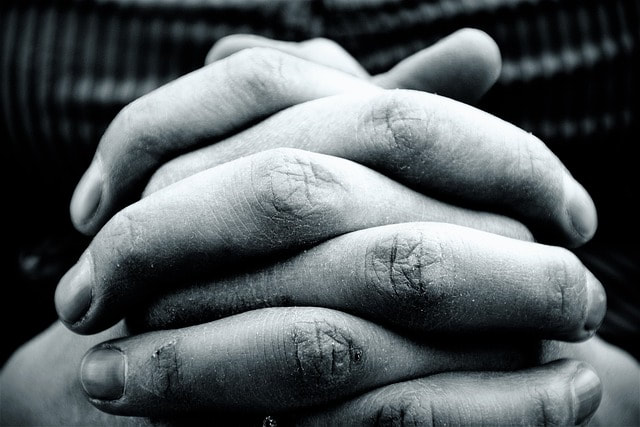
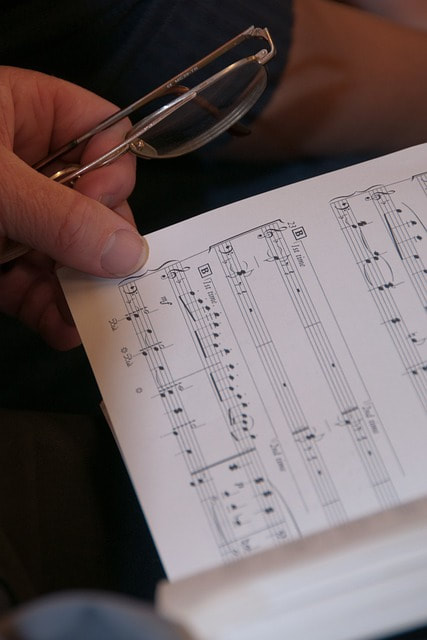




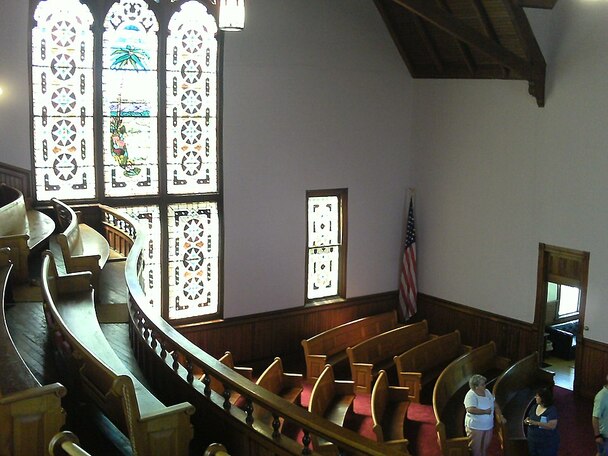


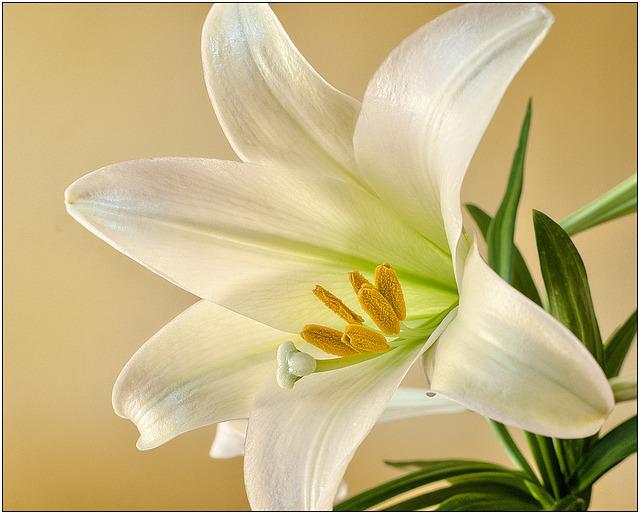

 RSS Feed
RSS Feed